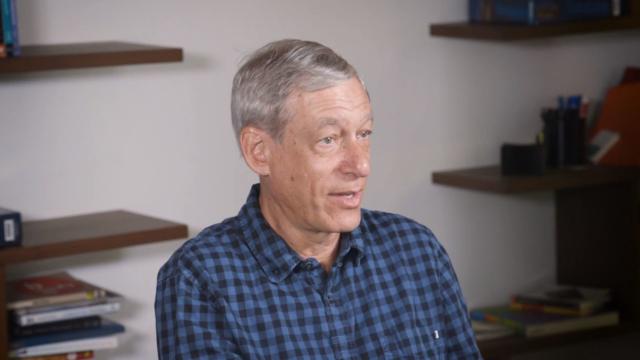After quietly leaving Google in March of this year, one of the lead engineers behind the development of the Pixel Camera — Marc Levoy — has just surfaced at Adobe.
First reported by David Imel before being confirmed by Levoy’s LinkedIn bio, Levoy will serve as a vice president and fellow at Adobe, where he will continue his work with computational photography while also helping to develop the Photoshop Camera app and other imaging apps.
Before joining Google, Levoy (whom I got a chance to interview about the Pixel camera in 2019) was a professor at Stanford University where he was credited with coining the term “computational photography,” which is the use of algorithms and machine learning to improve on traditional photography. At Google, Levoy worked on the camera used in the original Google Glass, before parlaying that work into developing the software and processing used in Google’s Pixel phones.
[referenced url=”https://gizmodo.com.au/2020/06/photoshops-new-camera-app-makes-instagrams-filters-look-hopelessly-outdated/” thumb=”https://gizmodo.com.au/wp-content/uploads/2020/06/11/fhjf9c8tkw8spydatr3x-300×169.jpg” title=”Photoshop’s New Camera App Makes Instagram’s Filters Look Hopelessly Outdated” excerpt=”Now that posting photos of yourself to social media has become a career for many, Adobe has put some of the powerful photo-editing capabilities of its Photoshop software into a new camera app that uses AI to do all the hard work for you. But the app doesn’t just apply…”]
During his time with the Pixel Camera team, Levoy helped pioneer some of the most important photography features, including the Pixel’s signature HDR+ processing, astrophotography mode, and Night Sight, which sparked a trend among smartphone makers that led to practically every major manufacturer developing their own dedicated low-light photo mode.
While Levoy spent most of his recent efforts improving a single camera app, based on a press release issued by Adobe, it appears Levoy’s main project will be to create some kind of “universal camera app” that could work across a number of devices, platforms, and ecosystems. Unfortunately, Adobe didn’t go into specifics about what it thinks a universal camera app really is, but if you imagine a single app that could be used on both Android and iOS that would also have tie-ins to major social media apps like Instagram and Snapchat, you would be sort of looking at the holy grail of camera apps.
No longer would you have suffer from the subpar image quality you get from a lot of today’s most popular apps, and you would also be able to leverage some of Adobe’s most sophisticated processing techniques to create a variety of fun effects and filters.
That said, one of the big hurdles to creating a universal camera app is that many of the features and APIs used in things like the Pixel camera app or the iPhone camera app aren’t readily available to third-party developers. And with a lot of engineers at the big device makers having much greater access to pre-production hardware at software, companies like Adobe are often trying to play catch up.
However, with someone like Levoy leading the team, there’s a good chance Adobe could create something that would rival the best camera apps out right now. We’ll just have to wait and see.
